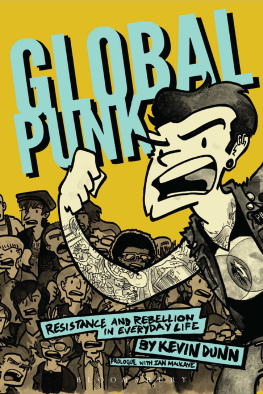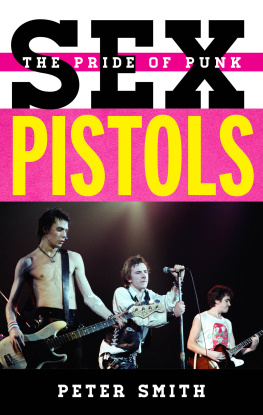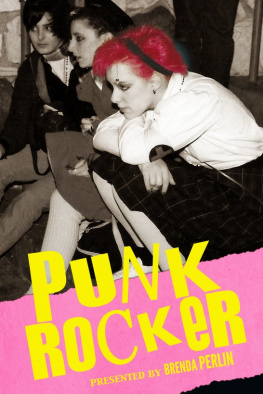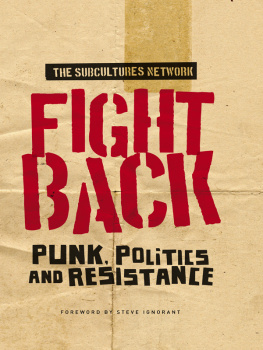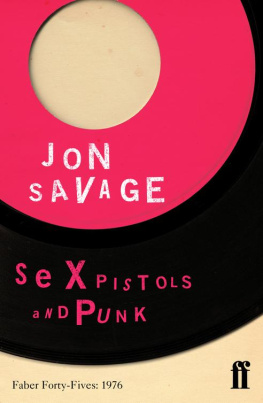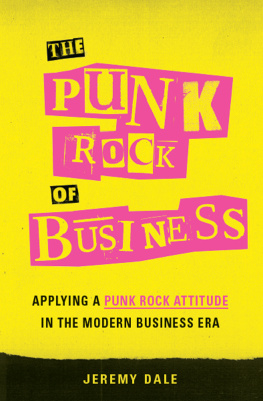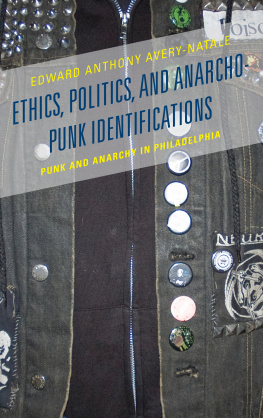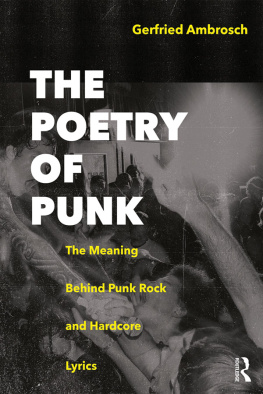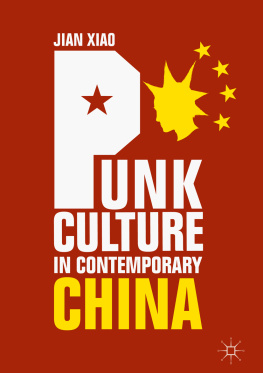For
Ray McKelvey
aka Stevie Ray Stiletto
(19562013)
and
Barrow and Strummer Dunn
Riot Grrrls for the next generation

CONTENTS
First and foremost, I want to thank the hundreds of punks, musicians, fans, writers, artists, booking agents, and record label owners who have spent time talking and hanging out with me over the years. This book is for and about you, and I hope I have done you justice. Special thanks goes to Deek Allen, Danny Bailey, Mitch Clem, Todd Congelliere, Anugrah Esa, Teuku Fariza, Daryl Gussin, Amanda Kirk, Rachmat Maggot, Ian MacKaye, Alex Martinez, Chris Mason, Anna McCarthy, Anne Elizabeth Moore, Evan OConnor, Mack Peterson, John Piche, Marty Ploy, Liz Prince, Davey Quinn, Adith Reesucknotoz, Indra Saefullah, Ben Snakepit, Graham Stakem, Stevie Tombstone, Jennifer Whiteford, and Noah Wolf. In the academic world, there are many debts of gratitude that I owe, but I am particularly grateful to have such good friends in Morten Bs, Charlie Bertsch, Matt Davies, Marianne Franklin, Kyle Grayson, Aida Hozic, Naeem Inayatullah, Cedric Johnson, Iver Neumann, David Ost, Simon Philpott, Nic Sammond, Eric Selbin, Ian Taylor, and Cindy Weber. I am fortunate to work at Hobart and William Smith Colleges, with supportive colleagues and a generous administration that has provided research funds for this project. Their unwavering support of academic freedom is also greatly appreciated.
Special thanks to all my family and friends in Geneva and beyond, especially Laurel Allen, TJ Boisseau, Rob Carson, Chuck Crews, Ashley Dunn, Bill and Diane Dunn, Ian Dunn, James Emery Elkin, Pablo Falbru, May Summer Farnsworth, Ben Frazier, Jody Gardner, Bethany Haswell, James Haswell, Alex Hayden, Kirk Hoppe, Brady Leo, Steve Mank, Lee Peters, Amy Phillips, Brandon Phillips, Doug Reilly, Jason Rogers, Nick Ruth, Richard Salter, Mike Schill, Mark Swift, Anny Thompson, Jack Vickrey, Chris Welch, and Matt Werts. I was very fortunate that Sean Carswell, Mike Faloon, Matthew Kopel, Todd Taylor, and ten anonymous reviewers read early drafts of the entire manuscript. Their feedback was extremely useful and I am grateful for the time and energy they gave to this project. Thanks to everyone at Bloomsbury, especially Matthew Kopel, Ally-Jane Grossan, and Michelle Chen. Finally, I am extremely grateful to Anna Creadick for her constant support, love, and friendship. This book, like so many other things in my life, could not have been accomplished without her.
Kevin: The argument of the book is that DIY punk matters, it empowers individuals, it empowers local scenes and communities, and also at the global level, it challenges corporate-led globalization.
Ian: Those tenets on why punk matters are so obvious to me that they dont even need to be necessarily spoken. Its like something we breathe.
I agree that its like breathing, its so obvious. It seems so internalized. Can you reflect on how DIY punk has impacted your own development, your own identity over the years?
I guess I cant because I cant parse them. I dont see DIY or punk as something that I can slip on. When I got involved in punk, of course it was DIY, because who else was going to do it? Its the art of necessity. It wasnt as if I went to a store, looked at a shelf, and thought, Well, I can do it the major label way, or I can do it the DIY way. There was no choice in the matter. If we wanted to be in a band, we had to write our own songs. If we were going to play, we had to set up our own shows. If we wanted records, we had to make our own. These were necessities. Its completely part and parcel of my life. So when you ask me to reflect upon what the punk or DIY thing has brought to me, its very difficult.
I can talk about my introduction to punk, which was a good exercise in stretching my understanding. An example Ive often used is that if you grew up in a typical American family and every night you have dinner, lets say you have a hamburger or a pork chop and some vegetable. Thats dinner. And then you find yourself in an Asian country, and whats put in front of you bears no resemblance to a hamburger or a pork chop, you learn that dinner is not limited to that particular construct thats foisted upon you by your environment, your surroundings. You also find out quite often that what does not appear to be dinner actually is dinner, and is better for you. The same could be said about music or self-presentation or attitude.
I was raised at a time when youth rebellion was sort of in the air. I was born in 1962, so I was growing up at a time where the hippies really held sway in my world. In many ways it was as if I was raised by them. I think the world was staggered by the whole youth rebellion. They were challenging conventional ways of thinking, turning it on its head. Then the seventies came along, and as a young teenager, I thought there was a real stasis. I couldnt figure out what happened to the people who were truly alternative, really using completely alternative ways of approaching life. And in my limited scope, which was living in Washington, DC and going to public high schools, the only forms of rebellion I was really seeing came limited by self-destruction. How were kids in high school rebelling at that time? They were getting high, drinking, and that tended to be pretty much the only thing on offer, which seemed absurd to me. I would think anyone would agree if they were to stand back and think about it. If youre trying to rebel against society, you dont volunteer to check out, you step to it.
My first introduction to punk was learning how to stretch my understanding of what art or culture could be. I came across it almost by accident, this community of people that referenced the idea of actually challenging conventional thinking. That was something I was really looking for. The Sex Pistols, the Clash, the Damned, the Ramones, all these bands. What I was hearing from that, what I gleaned from it, was self-definition. They were doing something that was so completely radical. There was a sense that you could celebrate self-definition, you could do whatever you want to do.
Later on, people would say, Well, thats weird that you like this band, theyre on a major label, but it didnt matter to us. What mattered was that they were saying you could do whatever you want, and so we did. We had come from Washington, DC. Were not from London, not from New York, not from Los Angeles. Major labels just didnt exist in our world.
I think of and write about DIY punk as a way of being. Not as a lifestyle choice, but a way of inhabiting the world. What youre saying resonates with me. You mentioned Washington there at the end, so I want to talk to you about local scenes as places for building communities and for nurturing the elements for self-empowerment. Can you reflect on that, in your own experience in Washington, as well as some scenes that youve just seen around the world, where DIY punks are engaging in this community building.
For me, the idea is that people have an option to wake up with something to do that they want to do. That seems, to me, the ideal, no matter how much work it is. The problem in our society for many people, I think most people, is that they wake up everyday with something to do that they dont want to do.
If you made a decision to drop out of that world, or to try something differently, then you risk something. You might feel a little lonely, but I think ultimately you find other people who share this ideal. They tend to clump together in such a way that you may find out that you have your own, I guess, community, for lack of a better term. Having said that, I have been trying to avoid using the word community because it has been so abused by corporations and the media. I mean, who wants to be a part of the McDonalds community?!
Next page
